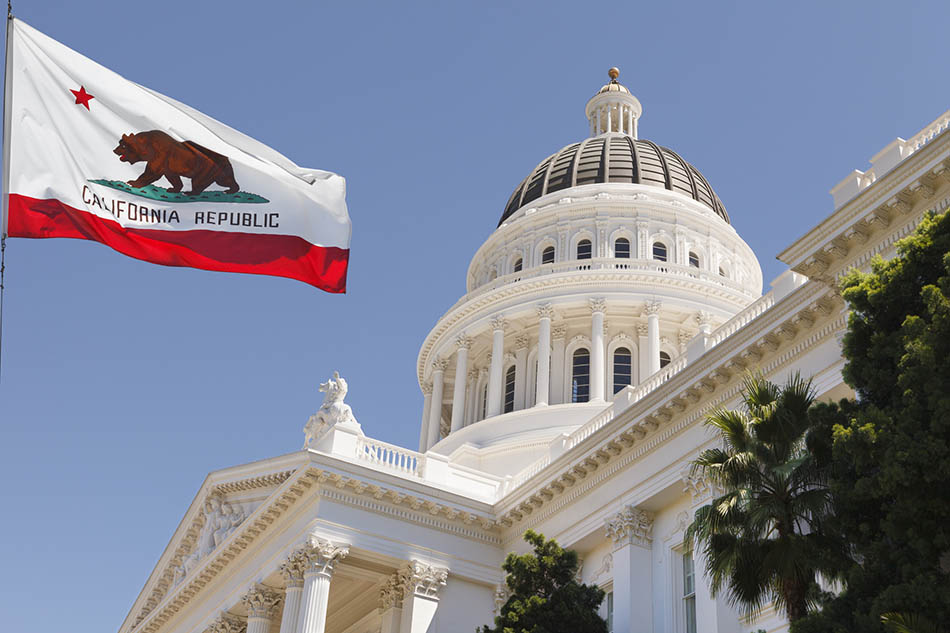Appeals Court Won’t Block Enforcement of California Net Neutrality Law
9th Circuit says FCC gave up pre-emption authority in reclassifying internet access as an information service

The smarter way to stay on top of the multichannel video marketplace. Sign up below.
You are now subscribed
Your newsletter sign-up was successful
A federal appeals court has refused to block enforcement of California‘s network neutrality rules, which internet service providers are challenging.
Cable ISPs — including those represented by ACA Connects and NCTA-the Internet & Television Association — had asked the 9th U.S. Circuit Court of Appeals to overturn a District Court's decision not to grant a preliminary injunction against the California Internet Consumer Protection and Net Neutrality Act.
But the three-judge 9th Circuit panel (Judges Mary M. Schroeder, J. Clifford Wallace and Danielle J. Forrest) — one of the most liberal circuits in the federal appeals court system — instead upheld the lower court.
Also: ACA Connects Makes Its Case Against Calfornia Law
ISPs had argued the California law was pre-empted by the Federal Communications Commission's 2018 decision to eliminate rules against blocking, throttling and anticompetitive paid prioritization, a move that had prompted California to create rules of its own.
The appeals court agreed with the district court that the FCC lacked the authority to pre-empt the state law because in reclassifying internet access as an information service under Title I of the Communications Act, the FCC no longer had the authority to regulate the way it did when it was a Title II telecommunications service.
It pointed to the U.S. Court of Appeals for the D.C. Circuit upholding the FCC reclassification but striking down the accompanying order asserting pre-emption of state net neutrality rules.
The smarter way to stay on top of the multichannel video marketplace. Sign up below.
Also: California Net Neutrality Law Victory Draws Crowd
The 9th Circuit panel also rejected the ISPs’ contention that the California law was pre-empted because it conflicted with the underlying FCC policy or because interstate service was the sole province of the federal law.
The underlying case against the California law has yet to be adjudicated. This ruling only settled whether enforcement should be delayed until the underlying ISP challenge is resolved.
“Like a lot of 9th Circuit decisions, it is arguable that the court got the law wrong regarding whether California's net neutrality law is pre-empted," Randolph May, president of the market-oriented think tank Free State Foundation. “Given the inherently interstate nature of today’s tightly integrated broadband internet networks, there’s a good chance that other circuits might reach a different conclusion regarding pre-emption. But the risks of Internet service providers being subjected to a legacy common carrier regulatory regime established initially to regulate railroads in the 19th century and then Ma Bell last century, and a patchwork of varying state regulatory regimes with different mandates, should prompt Congress to resolve the decades-old net neutrality controversy by adopting a new law that prevents consumer harm while recognizing the technologically dynamic nature of today’s Internet ecosystem."
Also joining the ACA Connects appeal were CTIA, representing wireless ISPs, and USTelecom, representing telecom ISPs.
They can appeal the panel decision to the full court if they choose.
“Today is a great day for the free and open internet," said California Democrat Rep. Anna Eshoo (D-Calif.), a big supporter of net neutrality rules. "The Ninth Circuit Court of Appeals upheld California’s net neutrality law, the strongest in the nation, a major win for small businesses and internet users across my state,” said Eshoo. “A free and open internet is critical for innovation, free expression, and our economy. Now Congress and the FCC should follow California’s lead and expand net neutrality to all Americans as I’ve advocated for years.” ■
Contributing editor John Eggerton has been an editor and/or writer on media regulation, legislation and policy for over four decades, including covering the FCC, FTC, Congress, the major media trade associations, and the federal courts. In addition to Multichannel News and Broadcasting + Cable, his work has appeared in Radio World, TV Technology, TV Fax, This Week in Consumer Electronics, Variety and the Encyclopedia Britannica.

